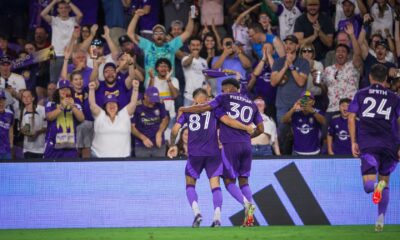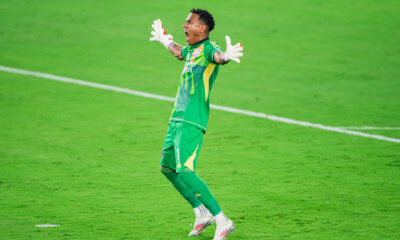Orlando City
Orlando City vs. New York Red Bulls: Player Grades and Man of the Match
How did your favorite Lions perform in Orlando City’s 1-0 loss in the Eastern Conference final?
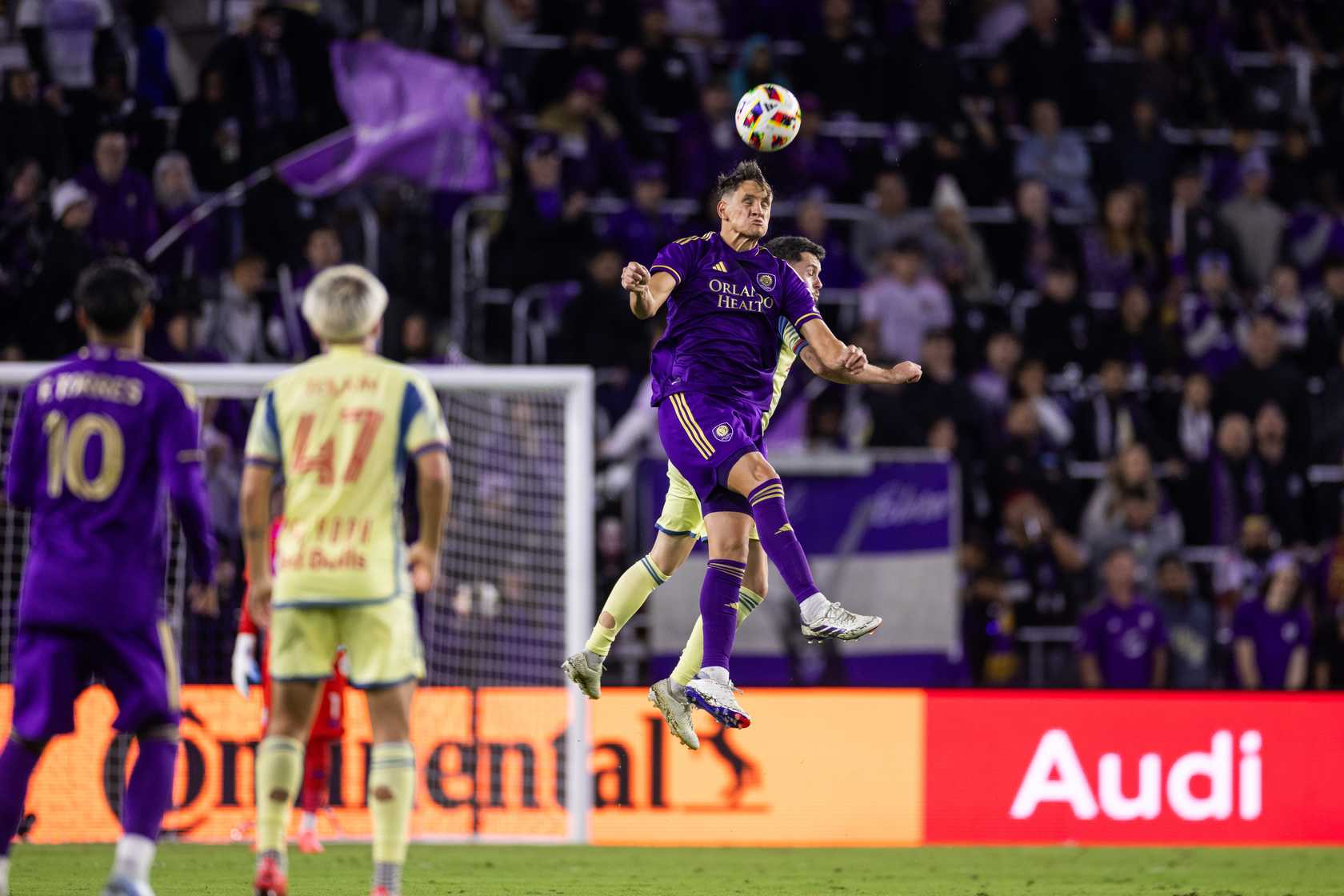
Every loss stings, but season-ending playoff losses hurt the most, and unfortunately Orlando City felt that deep sting Saturday night, losing 1-0 to the New York Red Bulls and falling one game short of advancing to MLS Cup. The Lions simply did not have it offensively, again, and it led to the Red Bulls celebrating a smash-and-grab victory on the field of Inter&Co Stadium after the final whistle. Ugh, I did not like typing that at all.
I have my purple pen out and I am ready to issue some grades, so here we go. Let’s take a look at how Orlando City’s players rated individually in their Eastern Conference final matchup.
Starters
GK, Pedro Gallese, 6 — There was not a lot for Gallese to do during this match, as while the Red Bulls did pose a threat offensively, they only managed seven shots and just one shot on goal, a well placed header off the post that no goalkeeper would have saved. Gallese made a great play to snuff out a late breakaway, coming well out of his box and making a sliding block with his body to keep the score 1-0, but aside from that, most of his game contributions were in distribution, and he did not have his finest game in that area, connecting on only 61.5% of his passes and only six of his 16 long-ball attempts.
D, Rafael Santos, 6 — The Brazilian left back gave a strong effort, but was just was unable to make a major impact on the game. Orlando City attacked up the left side 45% of the time, but despite having so much possession and so many touches (a team-leading 88, 21 more than the next highest player), Santos passed at just a 68.8% rate, only completed one long ball and did not have any successful crosses in seven attempts. Some of those crosses were good, but New York kept them from reaching their targets. Defensively, he chipped in four clearances. In the attacking end, Santos fired one of Orlando City’s nine shots and registered one of the team’s meager three shots on target and drew two fouls without committing any.
D, Robin Jansson, 6.5 — Jansson was solid in the back, providing his standard steady defending in partnership with Rodrigo Schlegel, and helping to limit the Red Bulls from getting any shots on target during the run of play. As the Lions began to chase the game in the second half and found themselves stretched, he made several excellent defensive recovery runs to track back and win it back, though when he did get the ball back I thought too often he settled for just launching the ball forward instead of trying to work the ball up the field out of the back. He blocked two shots and finished with two clearances. He completed 78.3% of his passes, a number which was limited by connecting on just six of 15 long balls.
D, Rodrigo Schlegel, 6.5 — As is his trademark, Schlegel was intense and engaged for the full 90 minutes and left everything on the field. He and Jansson did an excellent job protecting the center of the box, limiting the Red Bulls to very few scoring opportunities through the middle of the field. Schlegel picked up a yellow card for a professional foul late in the game, but at that time the Lions were stretched and chasing the game and if not for his foul New York may have put the game away. The Argentine was the best passer of the back four (89.7% and 1/1 on long balls) and provided three clearances.
D, Dagur Dan Thórhallson, 6 — Orlando City played primarily down the left side of the field during the Icelandic defender’s time on the field, and so despite playing 60 minutes, he only had 24 touches and did not contribute much offensively with those touches. Thorhallsson passed at a 75% rate without attempting a long ball or creating a scoring chance. On the defensive side he led the team with five clearances, but overall it was a quiet night for Thórhallson, and he was removed in an offense for defense substitution in the 61st minute.
MF, César Araujo, 6.5 —Araujo played a solid match in the middle of the field, completing 94.2% of his passes, winning a team-leading four aerial duels, drawing two fouls, blocking one shot, and making one interception. I thought he was far closer to his usual standard than his midfield partner Wilder Cartagena, but despite his work rate and contributions, he was removed late in the game for Jack Lynn, as the Lions needed to throw all of their attacking players onto the field to try to find an equalizer.
MF, Wilder Cartagena, 5 — Cartagena picked the worst night to have perhaps his poorest performance of the season, as he was not the dominant player in the middle of the field that we saw in nearly every game. Everything seemed a step slow for the Peruvian midfielder and his touch was off as well, he only completed 79.4% of his passes, only the fourth time all season he was under 80%. The goal scored by the Red Bulls happened right behind him, and it appeared to me that it was his man who came in unmarked while he was watching the ball instead seeing both ball and man. Cartagena was subbed off in the 71st minute for Nico Lodeiro in a like for like substitution. His best moment was sending a great ball down the left for Martin Ojeda, setting up a golden opportunity for Facundo Torres. It was one of the Peruvian’s three successful long balls on six attempts. Defensively, he blocked a shot and had one interception.
MF, Iván Angulo, 5.5 — I don’t want to overly castigate Angulo for his foul that led to the game’s only goal, but it was a completely unnecessary one, and in a game against a team that struggles to score from open play, there was no excuse for giving the Red Bulls a cheaply earned set piece opportunity. That said, it is not Angulo’s fault that Cartagena did not stay with his man on the free kick (or perhaps got confused about whether someone behind him was supposed to pick up that runner — only the Lions know for sure), but without that foul, there would have been no dangerous cross in the first place. That was the moment of the match, but it was only one moment, and Angulo brought a lot to the table during the rest of that match. His speed up the left side created chances, he completed 90.5% of his passes, and the Colombian also showed his versatility by stepping back into a right back/right wingback role late in the match as Orlando City tried everything to get as many attacking players on the field as possible. I think he left everything on the field before being subbed out in the 88th minute for Kyle Smith, but I wish he had also left his hands down when trying to double the ball in the 47th minute. Angulo attempted one shot that was just wide, registered one key pass, and recorded one clearance.
MF, Martín Ojeda, 7 (MotM) — Ojeda made the offensive play of the game for Orlando City, making a great run up the left side to get onto Cartagena’s well-placed pass, drawing two defenders out of the middle, and playing a perfect cross to a wide-open Facundo Torres. On another night he would have added an assist to his ledger and the rest of the game could have played out completely differently. Ojeda was all over the field for the Lions, making plays all across the attacking third and leading the team with three chances created. In a departure from the normal substitution pattern, he stayed on the field when Luis Muriel entered the game and deservedly so, as I felt he was Orlando City’s most impactful player throughout the match. Ojeda passed at a 77.8% clip, including the aforementioned three key passes, two of his three long balls, and three successful crosses on 15 attempts. His lone shot attempt wasn’t on frame. The Argentine added a clearance on the defensive end.
MF, Facundo Torres, 6 — Torres was active, but he did not have the precision that he showed during the late summer run and will rue the huge chance he missed in the 32nd minute, one that certainly would have changed the entire tenor of the game. I was surprised he chose to shoot to his right instead of his left, as Torres is an outstanding shooter to his left when attacking from the right, and he left his shot far too close to Carlos Coronel for an easy save. The Uruguayan did get another shot on goal on a header late in the match, but it also did not trouble Coronel, and though he drew a team-leading three fouls, none of them led to any great chances for Orlando City. The Lions attacked down the right side on only 24% of their possessions, and with their focus on going left, Torres had few chances on his preferred right side to cut back into the middle to cause havoc. The enduring memory from this game for Torres will be that missed opportunity, one that I think he generally scores for more often than not, but alas on this night it was not to be. Aside from that, he passed at a 78.2% rate, completing one of his two crosses and one of his two long balls, but he surprisingly did not register a key pass. Torres also didn’t register any defensive stats.
F, Ramiro Enrique, 7 — Orlando City followed its usual substitution pattern and removed Enrique after 61 minutes for Duncan McGuire, but I wish Oscar Pareja had found a way to keep him on the field instead, because I thought he was one of the two Lions (along with Ojeda) playing the best during his minutes on the field. He drew a team-leading three fouls to match Torres in that department and was constantly making darting runs all over the attacking third of the field. He made a great hustle play to create one of Orlando City’s best opportunities, but rather than shooting, he tried to finesse past a defender to get a better angle and the chance fell apart. Enrique’s only shot attempt was not on target, and he passed at 77.8% accuracy on just nine attempts without a key pass or attempting a long ball or a cross. He won three aerials and chipped in defensively with a team-high two tackles and an interception.
Substitutes
MF, Luis Muriel (61′), 6.5 — Muriel once again changed the game once he stepped on the field, helping to ratchet up Orlando City’s attack, but despite playing several high-level passes, nothing ended up coming from any the plays he initiated. Muriel also had a half-chance late in the game that he badly mishit, skying a ball high and to the right, so much so that it actually stayed in bounds due to all the back and sidespin on the ball. Even though Orlando City’s best chance came before Muriel entered the game I thought the offense looked better when he was on the field, and I walked out of the stadium wishing that he had come on right after New York had scored, as he clearly grasped the urgency and played like it throughout his time on the field. Muriel completed 90% of his 20 passes, including a key pass and a completed long ball on his lone attempt, but his one cross attempt did not meet the target. Neither of his two shots hit the target either, but he added a tackle on the defensive side.
F, Duncan McGuire (61′), 6 — The most impressive play McGuire made while on the field was a full-field sprint back on defense to break up a counterattack, and while that was a big play to prevent a possible doubling of the lead, you generally want a striker’s most impressive play to come while attacking the opponent’s goal, not defending their own. McGuire got one shot off, attempting to finish on a ball played beautifully over the top by Muriel, but he could not get his body turned enough and the ball went harmlessly into the stands off his weaker left foot. The effort was there on Saturday night, but the final product was not. He completed six of his nine passes (66.7%) without a key pass, long ball, or cross. He won an aerial but contributed no defensive statistics.
MF, Nico Lodeiro, (71’), 6.5 — The Uruguayan came on around his usual time, but with the Lions playing from behind, he was asked to play differently than he has in recent appearances off the bench. By the end of the game he was playing as the sole defensive midfielder, with Orlando City throwing everyone forwards in hopes of tying the game. I thought he was excellent off the bench and that he outplayed Cartagena, the man he replaced in the lineup, completing 84.9% of his 33 passes, including his only long-ball attempt, however, he did not create a scoring chance or complete a cross. He added a tackle on the defensive side.
MF, Kyle Smith, (88’), N/A — By the time Smith entered, Orlando City was no longer in a standard formation, so Smith debatably came in as a right back or possibly as a right midfielder when he entered the game in the 88th minute. It really did not matter though, as he only had time for four touches and two attempted crosses, neither of which led to significant opportunities for the offense, and he didn’t play long enough to fairly warrant a grade.
F, Jack Lynn, (88’), N/A — Lynn made his first appearance of the playoffs as Orlando City was desperately chasing the game, but only had one touch and really did not have the opportunity to influence the game at all.
That’s how I saw the individual performances in Orlando City’s 1-0 playoff loss. Let us know what you thought of the game in the comments below and don’t forget to vote on the Man of the Match.
Opinion
Orlando City Must Learn from May’s Mistakes
The Lions can learn some valuable lessons from the three losses they suffered in May.
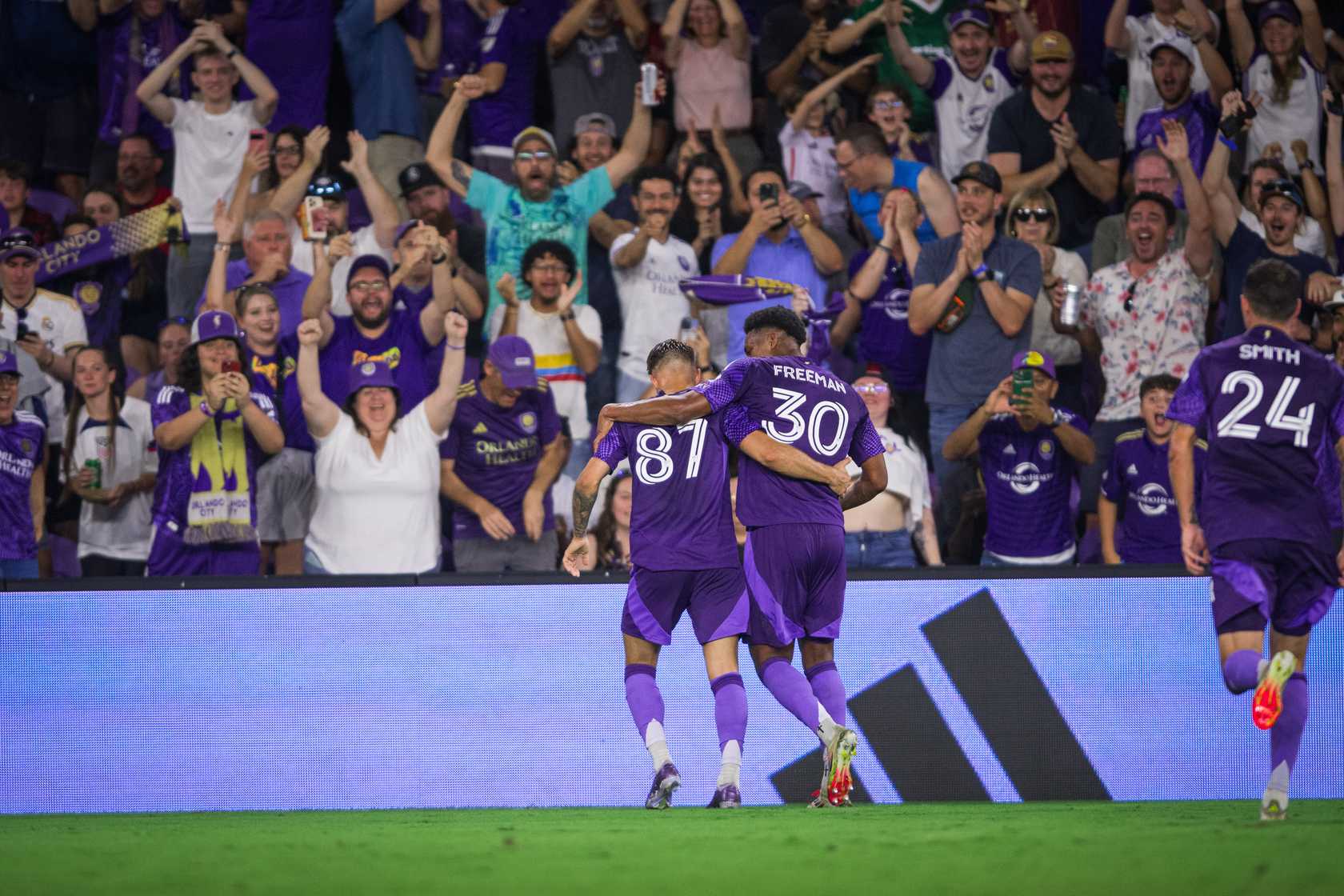
Orlando City hadn’t quite achieved juggernaut status as the Major League Soccer season turned from April to May, but a 12-match unbeaten run in the league is nothing to sniff at, despite there being a healthy number of draws interspersed with the victories. Things turned sour as May drew to a close though, as the Lions lost three of their final four matches of the month and entered a two-week break with a whimper rather than a roar.
Losing is never fun, but in this case those three defeats don’t need to be entirely negative experiences, and there are plenty of lessons to be learned from those three bitter losses that will hold Orlando in good stead if it can implement the proper solutions.
More Squad Rotation
One of the biggest factors in Orlando’s rough finish to May was a lack of squad rotation. Oscar Pareja has always been a coach that likes to find his first-choice XI and stick to it almost religiously. He doesn’t normally tweak his lineups or tactics according to whatever opponent is on the slate, and very much values consistency. In periods of fixture congestion, that tendency can be to Orlando’s detriment, and that was very much the case against both Nashville SC and the Chicago Fire.
After beating Inter Miami 3-0 in an emotional rivalry match on May 18, Pareja made just one change for a U.S. Open Cup match against Nashville SC three days later. Ramiro Enrique slotted in for Luis Muriel up top, but every single other starter from the Miami game also got the nod midweek. With Nashville deploying a heavily rotated lineup mostly filled with backups, the gamble was a simple one: hope that OCSC’s A-team can open up a big first-half lead against Nashville’s B-squad before bringing mass changes in the second half to get guys some rest. Hindsight is, of course, 20/20, but the strategy backfired badly as the Lions lost 3-2. Orlando started well with Marco Pasalic’s 17th-minute strike, but the team faded badly afterwards and gave up a couple of very uncharacteristic goals to lose the game. Lapses in concentration and tired defending cost OCSC the game, and that isn’t something we can normally say about this team.
Then, after losing to Atlanta United 3-2 on May 28 due in no small part to Cesar Araujo’s red card, Pareja made two changes for a match against the Chicago Fire on May 31, with Muriel coming in for Enrique, and the other change being a forced one, as Eduard Atuesta replaced the suspended Araujo. Those starters looked noticeably gassed during the resulting 3-1 loss, and the fatigue manifested itself by players missing chances that would normally be converted or in sloppy, mistake-ridden defending.
May was a packed month with a whopping nine matches in 31 days, and most months won’t be that busy. August is set to be the busiest remaining period of the year with six games in 31 days, although that number could rise higher if the Lions make a run in Leagues Cup. The bottom line is that guys are going to need more rest as the season goes on. If the coaching staff doesn’t trust some of the guys currently available as backups, then they need to dip into the transfer market in one way or another and get some players that they do trust, because if the starting XI gets run ragged during busy periods it’s going to cost Orlando, plain and simple.
Cool Heads Usually Prevail
Orlando City has received three red cards on the season, which is tied for the second-most in the league. Unsurprisingly, the Lions are winless in games in which they’ve had a man sent off, with draws against the New York Red Bulls and CF Montreal and a loss to Atlanta United. The results against the Red Bulls and Atlanta were particularly difficult to swallow, as before going down to 10 men, Orlando had looked on track to get three points in each game.
Araujo’s red card against Atlanta was especially frustrating, as he allowed Mateusz Klich to get under his skin, grabbed him by the throat, and reduced his team to 10 men when OCSC was nursing a 2-1 lead on the road. It was completely unnecessary and was also the sort of thing that Orlando had looked to put in the rearview mirror after keeping its collective composure and not picking up any bookings in the 3-0 road win against Miami, while the Herons picked up four and looked noticeably rattled in the process.
It should go without saying, but the Lions can’t afford to get key players sent off. Six extra points could make a big difference in the standings at the end of the year, and that number could rise even higher if OCSC can’t put its disciplinary issues to rest once and for all.
Focus for the Full 90
There were moments in each of Orlando’s three May losses that the team committed bad defensive lapses or mistakes. Whether it was not playing to the whistle on Nashville’s third goal, Atuesta’s bad turnover against Atlanta, or the Lions collectively allowing Chicago to stroll through midfield to score a third goal, there were plenty of examples of bad breakdowns that were largely absent during the team’s unbeaten run. Can some of that be attributed to tired minds and tired legs? Maybe so — it’s a lot harder to play crisp and focused when the minutes have piled up. Regardless, its something that can’t continue to happen going forward. It’s possible that having more rotation in the squad will help that a lot, but it’s also on the players on the field to stay as mentally sharp as they can when they’re out on the pitch.
Clearly, a recurring theme here is that fresh legs and balanced squad rotation are top of my list of things I want to see change. I’m all for riding the hot hands, but tired legs make for tired minds, and tired minds make mistakes and are easier to rile up. Whether reinforcements come from the bench or an outside source, using more bodies will go a long way towards solving some of the issues that we saw in May’s three losses. All we can do now is wait and see what happens once the team returns from its break. Vamos Orlando!
Lion Links
Lion Links: 6/6/25
Alex Freeman called up for Concacaf Gold Cup, Orlando Pride get ready for the Houston Dash, Orlando City B plays tonight, and more.
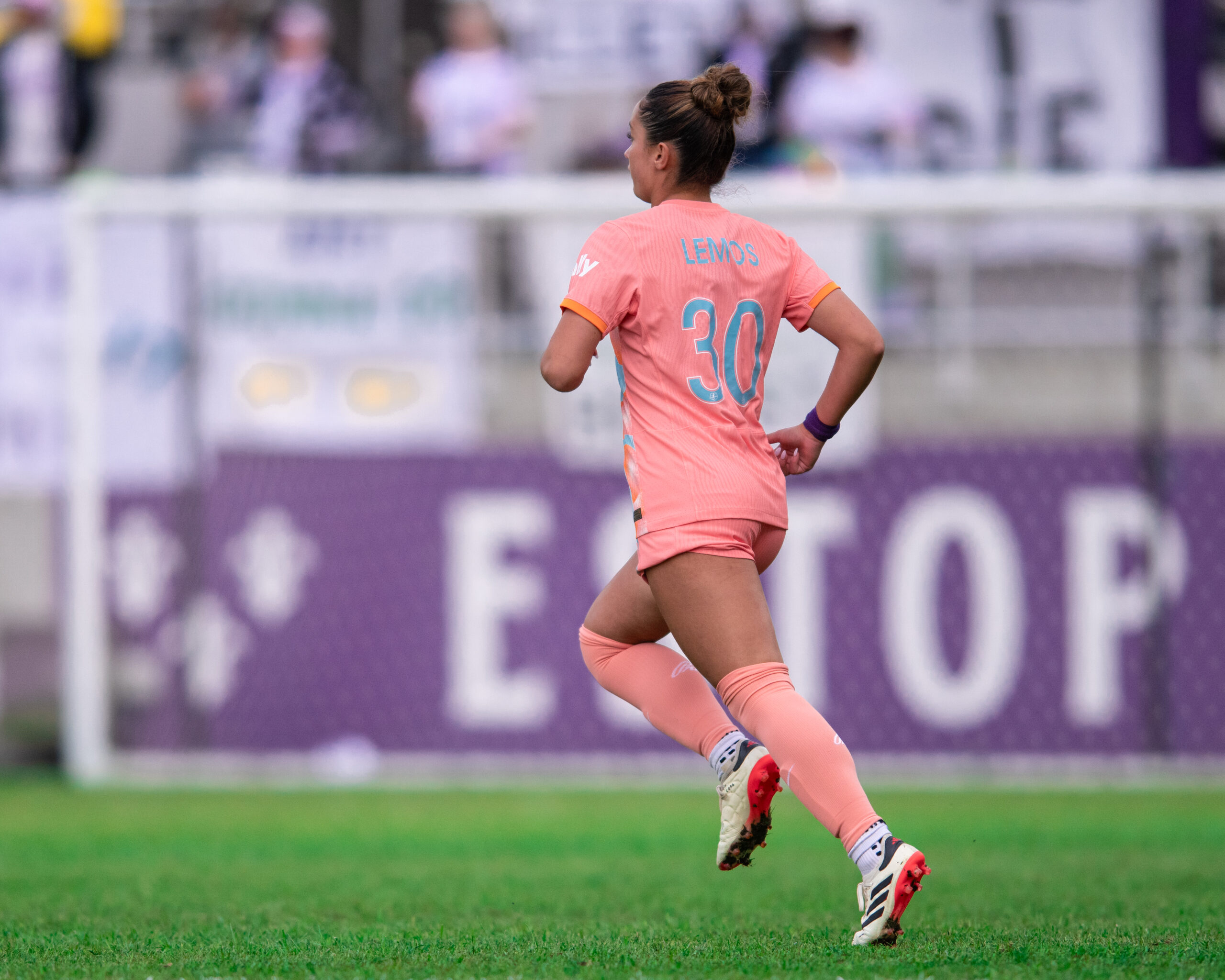
Happy Friday! I’ll be spending this weekend celebrating my birthday by beating my friends at mini golf with no mercy but still hope to catch some soccer over the next few days. I’ve also been on a bit of a movie kick and plan on catching Wes Anderson’s new flick at some point soon. But for now, let’s dive into today’s links!
Alex Freeman Called Up For Gold Cup
Orlando City defender Alex Freeman was officially called up by the United States Men’s National Team for the Concacaf Gold Cup this summer. He’s the only Lion who will be at the tournament and is one of seven uncapped USMNT players on the roster. The 20-year-old could receive more playing time than expected, as right back Sergino Dest is not on the roster so that he can recover over the summer. Left back John Tolkin was added to replace Dest, so Freeman has a real shot at making a claim for the position this month. The U.S. will take on Turkey Saturday in the first of two friendlies before its first Gold Cup match against Trinidad & Tobago on June 15.
Orlando Pride Prepares to Host the Houston Dash
With the international break for women’s soccer over, the Orlando Pride return to action Saturday with a home game against the Houston Dash. It should be a great opportunity for the Pride to ease back into the swing of things against a Dash team that’s only scored 10 goals this season. Pride midfielder Ally Lemos spoke on the benefit of being able to rest heading into this match while maintaining a winning mindset from a 3-1 victory on May 23.
Anna Moorhouse Called Up For 2025 Euros
Orlando Pride goalkeeper Anna Moorhouse was named to England’s final roster for the 2025 UEFA European Women’s Championship. She’s one of three goalkeepers on the squad following Mary Earp’s surprise retirement from international soccer, and she will likely compete with fellow uncapped player Khiara Keating for the backup position behind Hannah Hampton. Moorhouse has started in every game for the Pride this season and was an NWSL Goalkeeper of the Year finalist for her record-breaking season last year. England’s Euro run will begin July 5 against France before other group matches against the Netherlands and Wales.
Orlando City B Takes On Huntsville City FC
The Young Lions are riding high after a 2-1 win over Chattanooga FC and will take that momentum into tonight’s road match against Huntsville City FC. Midfielder Noah Levis scored his first career goal in that home win, with Justin Hylton providing the assist in his OCB debut. Orlando’s offense has been hot and cold this season but has a variety of attacking talent that can create chances in different ways. The Young Lions have only won once on the road, but a win tonight would lift them to third in the Eastern Conference.
Free Kicks
- FIFA Club World Cup action is coming to the City Beautiful this month and Orlando City legend Kaká spoke on how it’s nice for Orlando to host games.
- San Diego Wave Head Coach Jonas Eidevall was named NWSL Coach of the Month. The Wave were undefeated in May, winning three of their four matches to climb to second in the league standings.
- The NWSL will allow intraleague loans for all teams, with the players needing to consent to the move in order for it to happen. Denver and Boston’s expansion teams will have access to potentially over $1 million in Allocation Money starting on July 1 to build their rosters before the 2026 season.
- Atletico Madrid is reportedly close to signing American midfielder Johnny Cardoso from Real Betis.
- South Korea, Uzbekistan, and Jordan all qualified for the 2026 World Cup, while China was eliminated from contention. Australia beat Japan 1-0 and will qualify so long as it doesn’t lose heavily to Saudi Arabia on June 10.
- Spain beat France 5-4 in a wild game to reach the UEFA Nations League final against Portugal on Sunday. Lamine Yamal continues to take the world by storm, but a late rally by France nearly completed a comeback.
That’s all I have for you this time around. I hope you all have a fantastic Friday and rest of your weekend!
Lion Links
Lion Links: 6/5/25
MLS All-Star voting update, Kerry Abello shines with USWNT, Sergio Zapata earns recognition, and more.
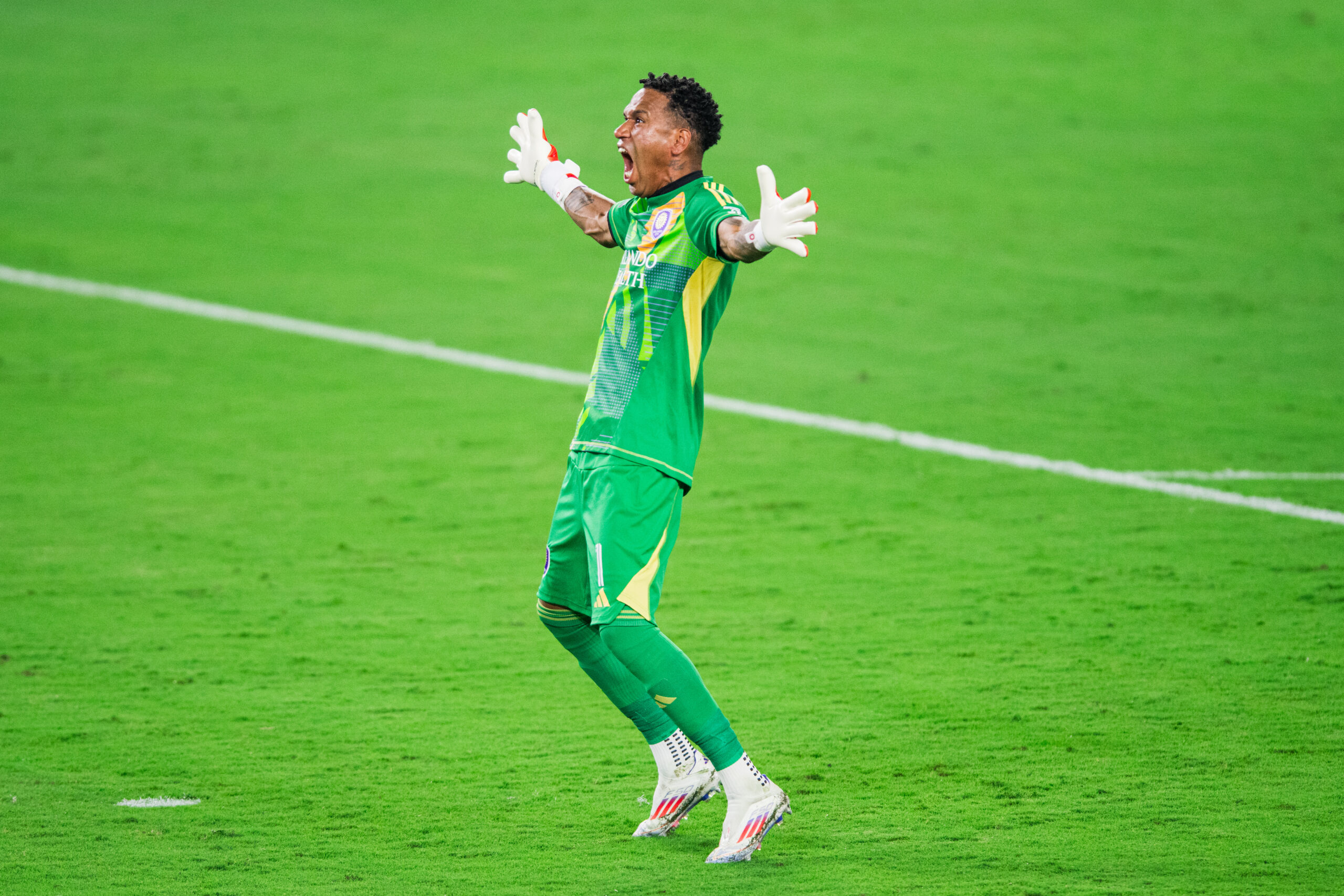
How’s it going, Mane Landers? I hope this week has been treating you well as we enjoy some international soccer and prepare for the return of NWSL action this weekend. Before we jump right into today’s links, let’s all wish a happy birthday to Orlando City B midfielder Dylan Judelson!
Pair of Lions Lead MLS All-Star Voting
Voting for this year’s MLS All-Star Game remains underway and an update was provided on which players are leading at each position. Orlando City defender Alex Freeman leads all right backs as he enjoys a breakout season. I was aware of the buzz he’s been getting this year, but it’s still surprising to see a Lion as an All-Star frontrunner. What’s even more surprising is that Pedro Gallese leads the voting for goalkeepers. The Peruvian made a rough gaffe last week, but has otherwise had a stellar season with Orlando that’s included seven clean sheets. Voting will close on June 11, so make sure to get those votes in before then.
Kerry Abello Impresses With USMNT
Orlando Pride defender Kerry Abello made her first appearance for the United States Women’s National Team Tuesday, playing every minute of the 4-0 win over Jamaica. The versatility she’s shown with the Pride translated well in Head Coach Emma Hayes’ system, as she was able to hold things down defensively and contribute to the attack as well. Abello could end up bringing solid depth to the USWNT as Hayes figures out the team’s future core of players. Enjoy this video from the USWNT that provides a look behind the scenes of Abello’s international debut.
Sergio Zapata Named Player of the Month
Sergio Zapata scored a whopping 11 goals for Orlando City’s U-19 team over the course of just four matches in May, winning the honor of MLS NEXT Player of the Month. He had three hat tricks last month, including one against Hoosier Premier at MLS NEXT Fest. Zapata committed to Cornell, so hopefully we’ll get to see him tear it up in the Ivy League over the next couple of years.
Zack Steffen Sustains Knee Injury
Goalkeeper Zack Steffen injured his knee at the United States Men’s National Team’s training camp and will reportedly miss this summer’s Concacaf Gold Cup. It’s rough news for the 30-year-old, as he was expected to compete with Matt Turner for the starting job with the USMNT. He’s been having a great season with the Colorado Rapids and returned to the club for further evaluation on the injury.
Free Kicks
- Orlando City and Orlando Health celebrated 29 elementary school students by giving them jerseys for their academic achievements.
- Sporting Kansas City forward Dejan Joveljic won MLS Goal of the Matchday for his acrobatic strike against the Houston Dynamo.
- Former Pride forward Messiah Bright signed a contract extension with the Houston Dash through the 2026 season with an option for 2027. The Pride traded Bright to Angel City FC in 2024 and she was traded to the Dash in January of this year.
- Mexico will be without San Diego FC forward Chucky Lozano for the Gold Cup due to a hamstring injury.
- Cristiano Ronaldo scored the winner for Portugal to beat Germany 2-1 to reach the UEFA Nations League final. It was Portugal’s first win over Germany in 25 years, and it will face either France or Spain in the final on Sunday.
- Simone Inzaghi left Inter Milan and is now the manager of Al-Hilal ahead of the Saudi Arabian club’s Club World Cup campaign.
That’s all I have for you this time around. I hope you all have a wonderful Thursday and rest of your week!
-
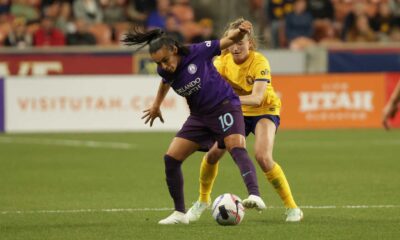
 Orlando Pride2 weeks ago
Orlando Pride2 weeks agoOrlando Pride vs. Utah Royals: Preview, How to Watch, TV Info, Live Stream, Lineups, Match Thread, and More
-

 Orlando City2 weeks ago
Orlando City2 weeks agoOrlando City vs. Portland Timbers: Preview, How to Watch, TV Info, Live Stream, Lineups, Match Thread, and More
-
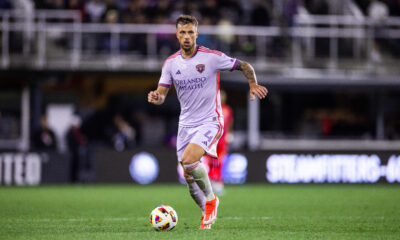
 Lion Links1 week ago
Lion Links1 week agoLion Links: 5/30/25
-
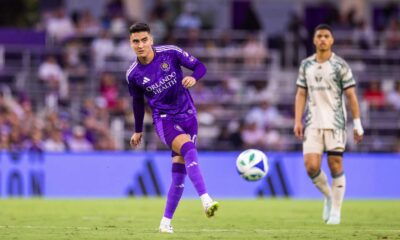
 Orlando City2 weeks ago
Orlando City2 weeks agoOrlando City vs. Portland Timbers: Final Score 1-0 as Lions Tie Club-Record 12-Game Unbeaten Streak
-
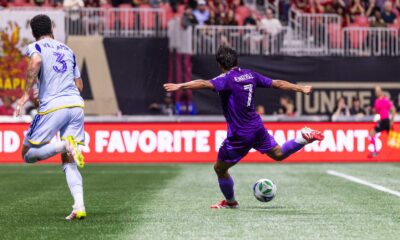
 Orlando City1 week ago
Orlando City1 week agoOrlando City vs. Atlanta United: Final Score 3-2 as Late Araujo Red Card Turns Orlando Lead into a Loss
-
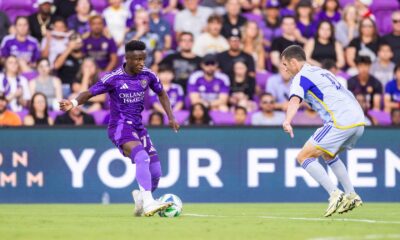
 Orlando City1 week ago
Orlando City1 week agoOrlando City vs. Atlanta United: Preview, How to Watch, TV Info, Live Stream, Lineups, Match Thread, and More
-
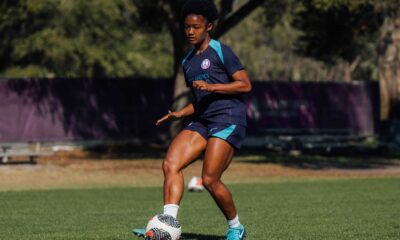
 Orlando Pride1 week ago
Orlando Pride1 week agoOrlando Pride Sign Forward Simone Jackson Through 2028
-
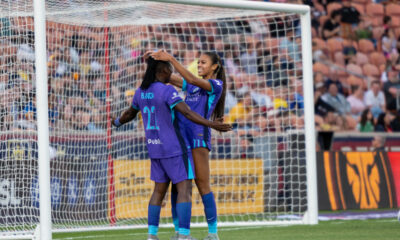
 Orlando Pride2 weeks ago
Orlando Pride2 weeks agoOrlando Pride vs. Utah Royals: Final Score 3-1 as Pride Win Behind Barbra Banda Hat Trick


